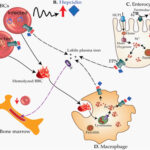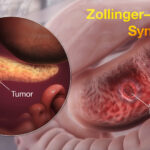Zinc is an essential trace mineral that supports hundreds of physiological functions, from immune response and wound healing to cellular metabolism and DNA synthesis. Zinc deficiency, although often overlooked, can have significant consequences on health and development. Understanding the causes, identifying symptoms, and taking proactive steps to treat and prevent zinc deficiency is critical for overall wellness.

What Is Zinc Deficiency?
Zinc deficiency occurs when there is an insufficient level of zinc in the body to support its normal biological functions. Since zinc is not stored in large quantities in the body, a continuous dietary intake is required. Both mild and severe deficiencies can manifest in various health issues, ranging from impaired immunity to growth retardation.
The Importance of Zinc in the Body
Zinc plays a pivotal role in:
- Enzyme function: Supports over 300 enzymes.
- Immune system regulation.
- Wound healing and tissue repair.
- Growth and development, especially in children.
- DNA and RNA synthesis.
- Antioxidant defense.
- Neurological function and behavior.
Common Causes of Zinc Deficiency
Several factors can contribute to zinc deficiency, either due to inadequate intake, poor absorption, or excessive loss:
1. Inadequate Dietary Intake
Populations relying heavily on grains and legumes, which contain phytates that inhibit zinc absorption, are at higher risk.
2. Malabsorption Syndromes
Conditions like Crohn’s disease, celiac disease, and chronic diarrhea reduce the body’s ability to absorb zinc effectively.
3. Chronic Diseases
Liver disease, kidney disease, diabetes, and cancer can impair zinc metabolism.
4. Excessive Loss of Zinc
Excessive alcohol consumption, burns, trauma, and certain medications (e.g., diuretics) increase zinc loss.
5. Vegetarian and Vegan Diets
Plant-based diets often lack sufficient bioavailable zinc, especially without proper supplementation or dietary planning.
Signs and Symptoms of Zinc Deficiency
Zinc deficiency can manifest differently across age groups and severity levels. Common signs include:
- Impaired immune function and frequent infections.
- Delayed wound healing.
- Loss of appetite and weight loss.
- Hair thinning or loss.
- Diarrhea.
- Skin rashes or lesions.
- Poor sense of taste and smell (hypogeusia and hyposmia).
- Behavioral changes, irritability, or depression.
- Stunted growth in children.
- Delayed sexual maturation.
At-Risk Groups
Certain populations are more vulnerable to zinc deficiency:
- Pregnant and breastfeeding women: Due to increased nutritional demands.
- Infants and young children: Rapid growth phases demand higher zinc intake.
- Elderly individuals: Reduced dietary intake and absorption.
- People with gastrointestinal disorders: Poor nutrient absorption.
- Alcoholics: Reduced absorption and increased urinary excretion of zinc.
Diagnosis: How Is Zinc Deficiency Detected?
Diagnosing zinc deficiency can be challenging, as symptoms overlap with other conditions and serum zinc levels may not always reflect true deficiency.
Diagnostic Methods:
- Serum/plasma zinc concentration: The most common, but not always reliable.
- Hair or urine zinc tests: Less commonly used but may offer supplementary insight.
- Clinical evaluation: Observation of signs and symptoms.
- Dietary assessment: Evaluation of daily zinc intake through food.
Treatment and Management
1. Dietary Modifications
Incorporate zinc-rich foods into daily meals:
- Animal-based sources: Oysters (highest source), red meat, poultry, eggs.
- Plant-based sources: Legumes, nuts, seeds, whole grains (require phytate reduction via soaking/sprouting).
2. Zinc Supplementation
- Forms available: Zinc sulfate, zinc gluconate, and zinc acetate.
- Dosage: Varies by age and severity; a typical adult dosage ranges between 15–30 mg/day.
- Precaution: Long-term high-dose supplementation can interfere with copper absorption and cause toxicity.
3. Address Underlying Conditions
Treating root causes such as gastrointestinal diseases or malnutrition is essential for effective long-term management.
Zinc Deficiency in Children
In children, zinc deficiency can lead to severe complications including:
- Growth retardation.
- Impaired neurodevelopment.
- Increased risk of infectious diseases like diarrhea and pneumonia.
- Delayed puberty.
Zinc supplementation has been shown to reduce childhood morbidity and mortality significantly, especially in developing countries.
Preventing Zinc Deficiency
Preventive strategies include:
- Balanced diet rich in bioavailable zinc.
- Public health fortification programs.
- Supplementation for high-risk groups.
- Education on food preparation techniques to reduce antinutrients.
Possible Complications of Untreated Zinc Deficiency
If left untreated, zinc deficiency can result in:
- Compromised immune defenses.
- Chronic inflammatory diseases.
- Fertility issues in men due to low sperm quality.
- Cognitive dysfunction and mental health disturbances.
- Severe malnutrition syndromes like acrodermatitis enteropathica.
Zinc deficiency is a global health concern with far-reaching effects on physical and cognitive development, immune strength, and overall wellbeing. While often underdiagnosed, it is both preventable and treatable through proper nutrition, supplementation, and medical intervention. Early recognition and proactive management can mitigate risks and restore optimal health outcomes.

